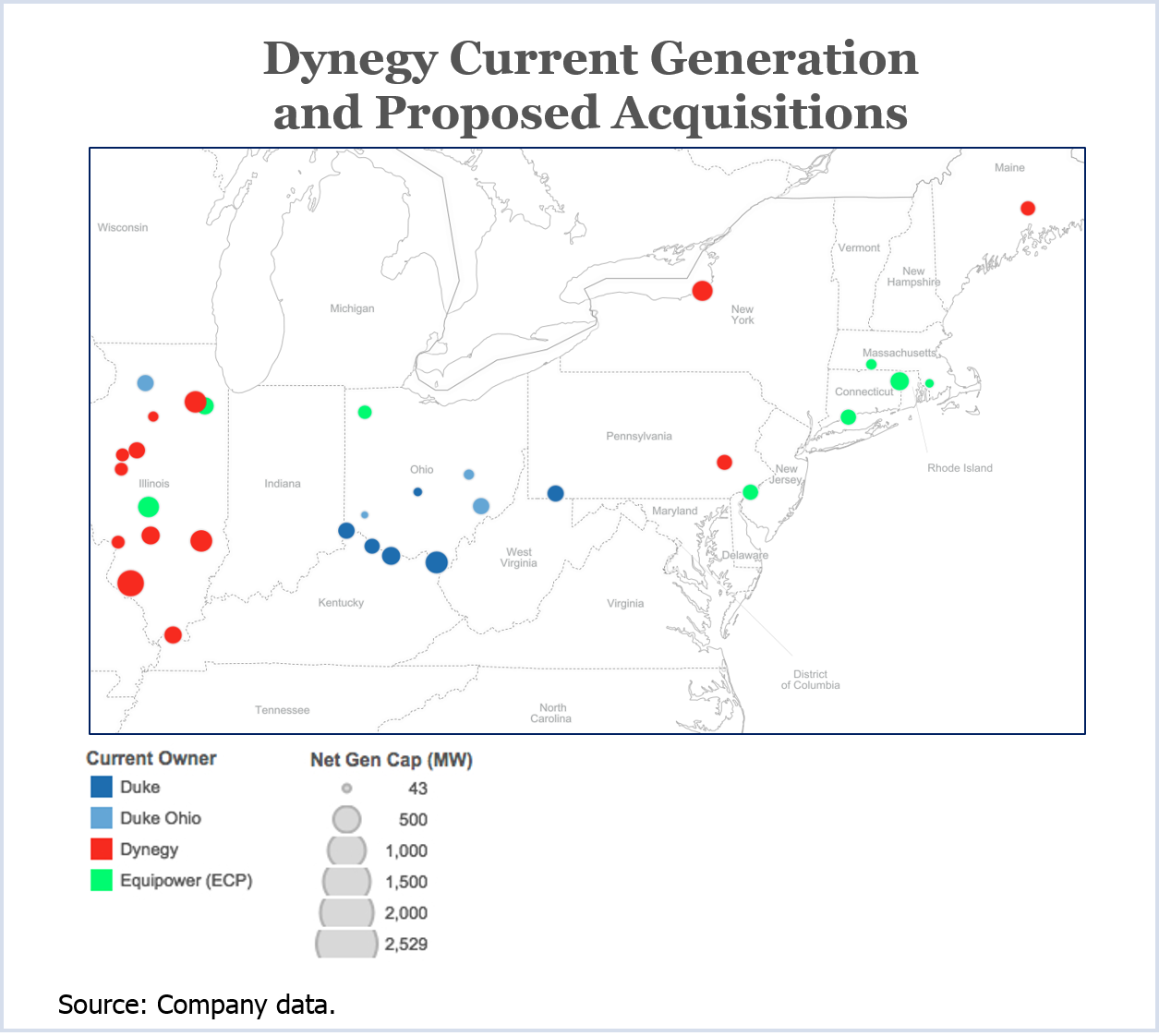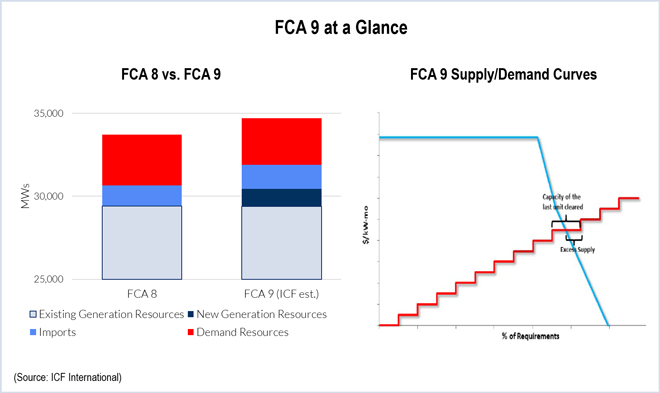PricewaterhouseCoopers’ fourth-quarter 2014 power and utilities mergers and acquisitions report showed an increase in both the number and value of deals greater than $50 million. The firm recorded 22 deals in the last quarter, compared to 12 in the third and 14 in the fourth quarter of 2013. The total value of the deals increased 57% to $17.4 billion in Q4 from $11.1 billion in Q3.
More: PWC
PSE&G Ranks Highest in Gas Service Customer Satisfaction in East
Public Service Electric & Gas was named No. 1 in gas-service business customer satisfaction in a poll by J.D. Power, with a score of 690 on a scale of 1,000. The ranking comes on the heels of PSE&G’s first-place ranking in electric-service business customer satisfaction among 12 utility companies earlier this year. It is the first time the company has achieved first-place rankings in both categories.
More: Electric Energy Online
PPL Shutting Down J.E. Corette Coal Plant near Billings, Mont.
A PPL subsidiary said that it will permanently shut down its mothballed 153-MW coal-fired J.E. Corette plant near Billings, Mont. PPL Montana closed the plant in 2012 because of low market prices and the high cost of environmental upgrades. At the time, it said that the plant might be returned to service if power prices warranted. It is not part of the PPL-Riverstone Holdings deal that will form a new merchant generation company, Talen Energy.
More: PowerMag
Entergy Says Vermont Yankee Decom Money not Guaranteed After 60 Years
Entergy is not guaranteeing that it will finance any decommissioning costs at the now-closed Vermont Yankee plant if it takes longer than 60 years.
Entergy Vice President Michael Twomey told Vermont legislators that if decommissioning isn’t completed by then, “there would probably be quite a lot of litigation” concerning additional funding. Vermont Yankee’s decommissioning fund currently holds about $600 million. He said he believes the fund will grow enough to cover the cost of dismantling the reactor and at least part of the cost of managing the plant’s spent fuel.
Because there is still no federal spent-fuel storage facility, all of the spent fuel since the plant started up in 1972 remains on site in pools. Twomey said the company has arranged two lines of credit to pay for transferring the fuel to dry casks and expects to be reimbursed by the U.S. Department of Energy.
More: PennEnergy
Atlantic Coast Pipeline Signs $400 Million Pipe Contract
While awaiting approval from the Federal Energy Regulatory Commission, and battling with opponents in Virginia, Atlantic Coast Pipeline is moving forward with a planned 550-mile natural gas pipeline and just signed a $400 million contract with a steel pipe company. The line is intended to bring shale field gas through Virginia into North Carolina. Last week, the consortium behind the pipeline said it contracted with Dura-Bond Industries to produce steel pipe ranging from 30 to 42 inches in diameter. It is the largest single order in Dura-Bond’s history, and the company’s Steelton, Pa., plant will add a second shift to help complete the order.
More: Virginia Business
Duke Energy Buys Majority Stake in Calif. Solar Company

More: GreenTech Media
Duke Solar Part II: Company to Build 111 MW in SC
Duke Energy said it plans to spend up to $68.7 million on solar projects in South Carolina over the next five years, adding 111 MW of solar capacity to the state’s grid. The plan calls for 53 MW of commercial solar capacity and 58 MW of rooftop solar. The residential rooftop solar will be spurred by customer incentives of up to $5,000 each, the company said.
More: Charlotte Business Journal
Dominion Awaiting FERC OK for Gas Tx Projects in Md.
The Federal Energy Regulatory Commission is in the final phase of reviewing two natural gas transmission projects proposed by Dominion Transmission to fuel two new power plants in Maryland. The 725-MW CPV St. Charles Energy Center in Waldorf and the 735-MW Keys Energy Center in Brandywine will be fed from Dominion’s existing pipeline, but the taps on the pipeline need to be approved by FERC. The $775 million St. Charles plant is under construction and due to come online by June 2017. Construction of the Keys Energy Center, a $750 million plant, will begin this year and come online in early 2018.
More: Southern Maryland News
TVA to Buy 760-MW Plant in Miss. for $340 Million
The Tennessee Valley Authority board last week approved a plan to buy a 760-MW natural gas-fired combined-cycle plant in Ackerman, Miss., for $340 million. The board also approved plans to enter into a power purchase agreement with an 80-MW solar plant to be built near TVA’s Colbert Fossil Plant in North Alabama. Charles “Chip” Pardee, chief operating officer, said the decisions were driven by a desire to add a cleaner mix to its coal-heavy portfolio to help meet pending Environmental Protection Agency emissions mandates. TVA has built or purchased five combined-cycle plants totaling 3,900 MW.
More: Chattanooga Times Free Press
FirstEnergy Investing Nearly $35 Million in Tx Projects to Support Shale Gas
FirstEnergy said it is upgrading existing transmission lines and building new substations in a $35 million project to support the Marcellus Shale gas industry in western Pennsylvania. Although the projects are aimed at serving the growing power needs of the shale gas industry, FirstEnergy customers will also reap the benefits: new shale gas projects account for about 370 MW of projected load growth in the area, the company said.
More: StateImpact
Exelon’s Korsnick to Take NEI COO Slot

Maria Korsnick, Exelon Generation’s senior vice president for Northeast operations and chief nuclear officer of the company’s joint venture with Electricite de France, is being loaned to the Nuclear Energy Institute for an 18-month assignment as the lobbying group’s chief operating officer. Korsnick has 28 years of experience in the nuclear industry.“Under Maria’s leadership, nuclear energy facilities at Constellation Energy Nuclear Group and Exelon have operated at exceptional levels of safety and performance,” said Marvin S. Fertel, president and chief executive officer at the NEI. “Maria will provide that same organizational effectiveness, vision and leadership working with our staff and members at NEI.”
More: NEI
Google Signs 20-Year Wind Contract with NextEra Energy

More: Silicon Valley Business Journal
Ameren Asking for More Time to Meet EPA Emissions Goals
Ameren is asking for an additional five years to meet emissions-reduction goals set by the Environmental Protection Agency, saying the current schedule that calls for incremental goals to be reached by 2020 is unreasonable. It said that expecting states to meet the goals “with such stringent targets at short notice” would lead to “staggering costs” of approximately $4 billion. It said it could meet the targets of compliance by 2035, five years past the suggested 2030 deadline.
“The EPA should allow states that put in plans that show they would be hitting the 2030 targets within a reasonable time frame around that 2030 date — in our case 2035 — the EPA should be flexible and allow that,” said Joe Power, Ameren’s vice president of federal legislative and regulatory affairs.
More: St. Louis Public Radio








